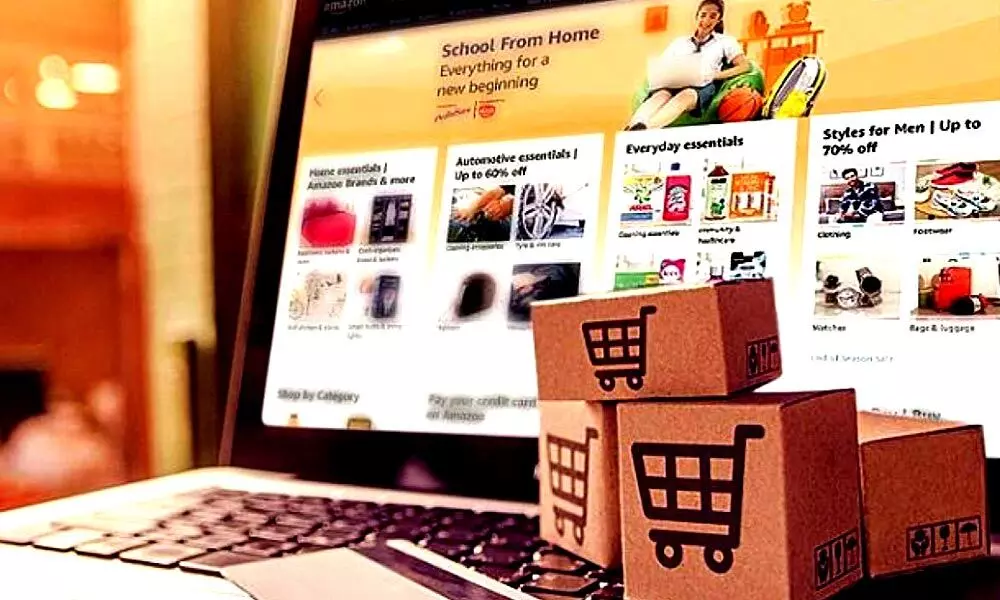Indian D2C mkt expected to touch $100 bn by 2025
From fashion to food to décor to beauty, the D2C brands are riding high on the digital transformation wave, coupled with increased internet penetration into the market
image for illustrative purpose

Direct-To-Consumer (D2C) is a commerce strategy used by the brands to eliminate wholesalers, retailers, and distributors from their supply chain and instead, maintain direct relationships with the end consumers. As per IBEF estimates, the Indian e-commerce market would grow to $200 billion by 2026 from $38.5 billion as of 2017.
As we look ahead at 2021, digital-first D2C brands will continue to emerge, with large brands also launching their digital-first arms. D2C brands that aim to outstay the competition will need to leverage insights from customer data to amp up their traffic, engagement and conversions. Business enablers like website tech, marketing tools, logistics and supply chain providers and fintech companies will play a key part in this and will continue to grow. We are also likely to see larger volumes of e-commerce sales coming from consumers in tier-2, tier-3, semi-urban and rural markets as their aspirations and income levels grow. Above all, technology and innovation will be key to success, with trends like AI-enabled decision making, advanced forecasting and recommendations, localized content and native regional language interfaces, conversational commerce and social commerce set to lead the way for D2C growth in 2021.
Some brands integrate marketplaces like Amazon, BigBasket, Grofers etc. into their channel mix. The low and medium-volume enterprises partner with e-marketplaces while outsourcing several segments of the value chain. As an example, Sleepy Owl ships a part of its product range through Amazon to its customers.
Marketers worldwide have echoed this sentiment. 58 per cent of the respondents in a study acknowledge 'copycat competitors' as the one threat D2C brands may not foresee, claim the CMO Club and Epsilon.
With brands increasingly relying on an Omnichannel strategy to engage with their customers, there is a huge scope for a platform that allows you to build your offline distribution in key metro cities.
Platform can partner with retail chains and mid-size stores on one side and with D2C brands on another. They can offer a live platform to bookshelf space, view and manage inventory across stores, customer relationship management, and logistics support.
Even for the retailers, it will provide a good opportunity to increase their revenue stream, offer new products and importantly manage the relationship with multiple brands through one platform (similar to the way Limetray acts for restaurants, aggregating orders from all delivery partners).
This can be best done by players who are trying to digitize the retail stores offering solutions for inventory management, customer relationship, transactions recording and payments. We know that distribution is one of the most important factors in building a D2C brand, rather FMCG companies like HUL, P&G etc., clothing brands like Levi's, Louis Philippe, Allen Solly etc. are all marketing companies in the end. They contract manufacture, inspect quality, and sell under their brand. Similarly, celebrities and influencers in India and worldwide are launching their own private label brands. For example, Hrithik Roshan, Virat Kohli, Deepika Padukone etc. launched their brands in partnership with Myntra. Salman Khan recently launched his personal care brand FRSH.
To enable the influencers or anyone else, say a content/ media company to launch a private label D2C brand, contract manufacturing as a service combined with a Shopify-like platform will make it easy to launch new brands. It will also add immense value to the manufacturers' business.
Direct-to-consumer, popularly known as D2C brands are changing the face of Indian e-commerce and setting benchmarks with a new-age digital-first approach. From fashion to food to décor to beauty, the D2C brands are riding high on the digital transformation wave, coupled with an increased internet penetration into the market causing a rapid shift in consumer behaviour.
According to an INC42 Plus report on the D2C market landscape, the Indian D2C market is expected to touch $100 billion by 2025 on the back of the projection that online shoppers in India will reach 350 million by FY25, up from 128 million in FY21. The D2C brand was an early adapter in the e-commerce space, and hence when the pandemic struck the world, they were able to embrace the change and challenges.

